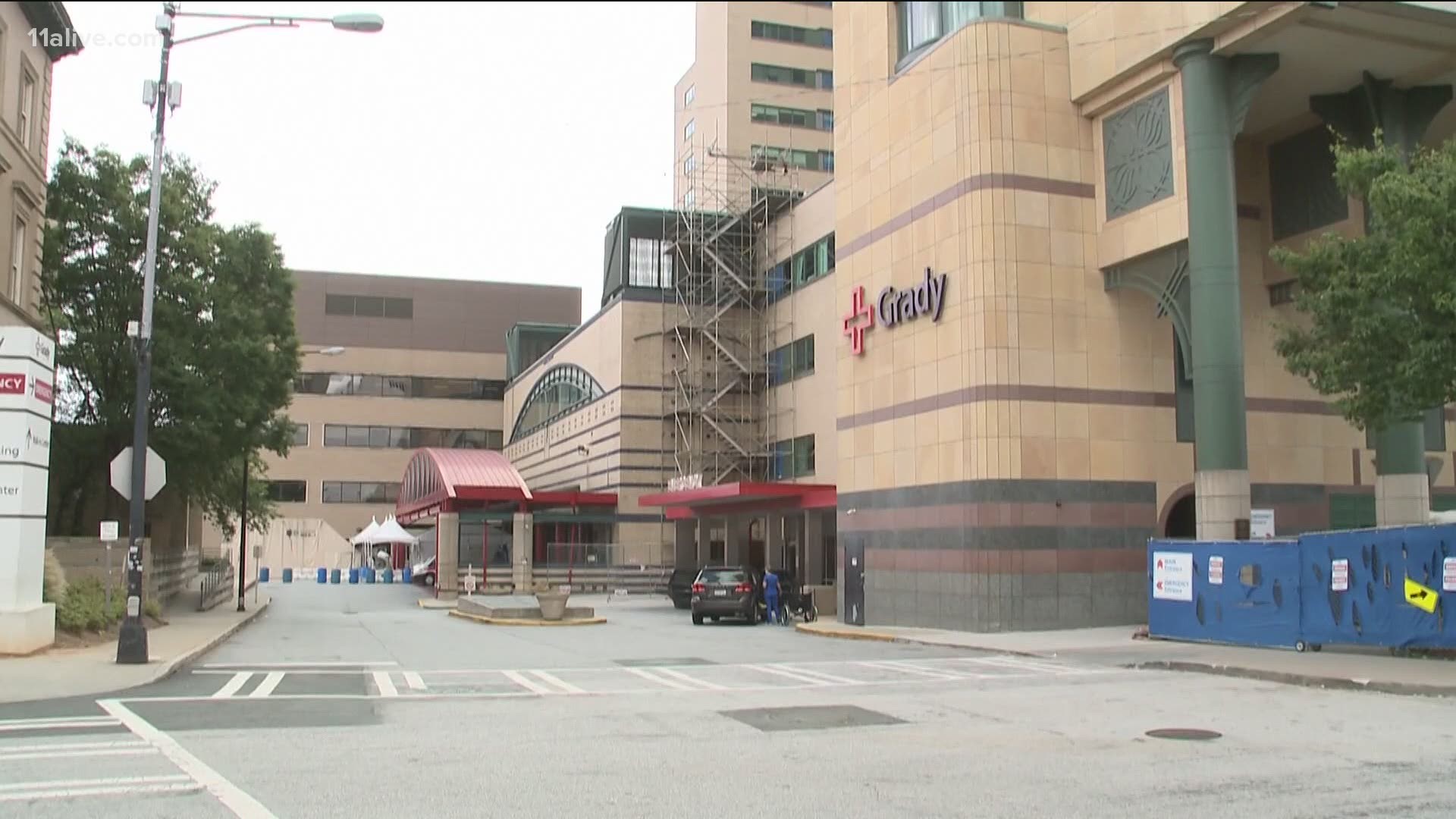ATLANTA — Georgia is seeing another spike in hospitalizations after a post-Thanksgiving holiday surge in COVID-19 cases.
The state registered 2,502 hospitalizations as of December 7. The Peach State has not logged that many hospitalizations since August 20. Its highest number of patients, 3,183, was recorded July 20.
Health officials warn hospitals in Georgia and nationwide may have staff, resources and space strained if the spread of coronavirus is not limited.
"We're already at about 84% of ICU beds in use now, so we just want to keep an eye on what's going on with hospital admissions," public health microbiologist Amber Schmidtke said. "We aren't in a crisis triage sort of situation where people are being turned away for care. We certainly don't want that to happen in Georgia."
Schmidtke said a nursing shortage prior to the pandemic, along with months of work, has only magnified the importance of medical staff responding to the health crisis.
"It's having ripple effects in all kinds of hospital settings," Schmidtke said. "We're seeing other states having to make some of those really tough calls of who gets a ventilator and who doesn't. We want to avoid that situation in Georgia."
ICU bed availability had fallen to just 2% in Hall County, according to Georgia health officials. Cobb and Cherokee Counties had 4% of ICU beds available, and Fulton, Dekalb and Gwinnett Counties had about 21% of critical care beds.
Dr. Robert Jansen, chief medical officer of Grady Health System, said the growing number of hospital patients has now put already postponed elective surgeries at risk.
"We're not at a critical level yet, but we certainly are becoming alarmed at the number of cases we're seeing," Jansen said. "We are now at the point where we're closely monitoring on a daily basis the number of patients we're holding in areas, and if we surpass that, then we'll have to start canceling patients soon coming in for elective procedures that would require in-patient care."
Jansen noted Grady Hospital usually had a high volume of patients, so the hospital was considering petitioning the governor's office for more resources. Earlier in the year, Grady turned to the Georgia World Congress Center to provide more space to house and treat patients. Jansen said the health system may also build an outdoor unit if the hospital runs out of beds.
Emory Healthcare said it had seen a significant increase in hospitalized patients with COVID-19. In a statement, the healthcare system said:
"We have seen our average daily census of hospitalized patients with COVID-19 double over the past month. While COVID-19 cases aren’t as high as our surge in July/August, the rapid rise in cases is very concerning."
Piedmont Health System said it was also working with the governor's office to get access to additional resources. Spokesperson John Manasso said network hospitals have not had to cancel any surgeries. Manasso said in a statement that Piedmont's percentage of COVID-19 patients has remained fairly consistent relative to the state’s number of hospitalized patients throughout the pandemic.
Wellstar Health System called the increasing trend in COVID-19 cases and hospitalizations concerning. Spokesperson Suzanne Forte said the health system had no plans to postpone or cancel surgeries. Forte said they had admitted 293 COVID-19 patients as of Sunday, along with 100 patients thought to have had the virus.
Wellstar had 315 ICU beds in use across the system, and 32% of ICU beds were dedicated to COVID-19 patients, Forte said.
"While we are very busy in our ICUs, we have developed plans to increase the number of staffed ICU beds as needed to meet increasing demand across our service area," Wellstar Health System said in a statement.
Health experts recommend limiting the spread of the virus, by frequently washing hands, wearing a mask and social distancing, to reduce the pressure on hospitals and staff.


